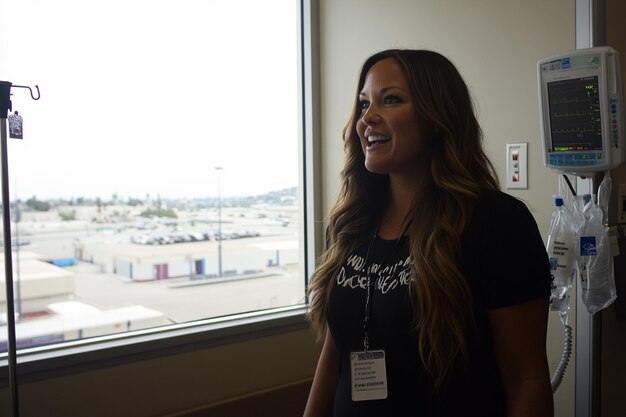Timing Your Cataract Surgeries: How Long to Wait Between Each Eye for Optimal Results
If you've been diagnosed with cataracts and are considering surgery, chances are you have some questions—especially about timing. One common query is how long you should wait between cataract surgeries on each eye. Understanding this timeframe can not only help in planning but also ensures the best recovery and outcome. Let's explore this topic from multiple angles to give you a thorough understanding of what to consider when scheduling cataract surgeries.
What Are Cataracts?
Before delving into surgery timelines, it's vital to grasp what cataracts are. Cataracts occur when the lens of the eye becomes clouded, leading to blurry vision, difficulty seeing at night, and a faded perception of colors. They mainly affect individuals over the age of 60 but can occur at any age due to factors like genetics, diabetes, and prolonged exposure to sunlight.
Why Might You Need Two Separate Surgeries?
Performing cataract surgery on both eyes simultaneously is generally not recommended. Here's why:
Safety First: Surgery on each eye separately minimizes the risk of complications affecting both eyes. If an unexpected issue arises during the procedure, it allows surgeons to adapt strategies for the second eye.
Recovery and Evaluation: The time between procedures gives the first eye a chance to heal and enables the surgeon to adjust the plan for the second eye based on the healing response and visual improvement after the first surgery.
Patient Comfort: It’s easier for patients to adapt and balance their vision when the difference is managed incrementally.
Recommended Timeframe Between Surgeries
Standard Waiting Period
The standard waiting time between cataract surgeries typically ranges from one to four weeks, depending on various factors such as:
- Patient Health: Individual health conditions might necessitate a longer interval.
- Procedure Outcome: The quality of the initial surgery outcome can influence timing. For example, if complications arise, more time might be needed before proceeding with the second eye.
- Patient Preferences: Some patients prefer a shorter interval for quicker overall recovery, while others opt for more extended periods to adjust to the new visual changes.
Ensuring Adequate Healing
Surgeons will perform a post-operative evaluation to ensure that the first eye has healed suitably and that the vision has stabilized. Healing is generally evaluated during a follow-up appointment within a week or two after surgery.
Factors Influencing the Timeline
- Pre-existing Conditions: Conditions like diabetes or autoimmune disorders may require a more extended healing period.
- Patient’s Daily Activities: For individuals whose daily activities heavily rely on sharp vision (like certain professions), a tailored approach might be necessary to minimize disruption.
What to Expect During Recovery
Initial Days Post-Surgery
During the first few days after cataract surgery, you may experience:
- Mild Discomfort: Some itching and discomfort are normal. Itchy eyes or a mild burning sensation can occur but usually fade quickly.
- Blurry Vision: It's typical for vision to blur slightly as your eye adjusts to the new lens. Colors may seem brighter, and clarity will gradually improve.
Weeks Following Surgery
- Vision Improvement: By the first week's end, many observe significant visual enhancements. Clarity and focus improve, allowing participation in day-to-day activities with greater ease.
- Assessment: A follow-up appointment assesses healing progress and lays the groundwork for planning the second surgery.
Tips for a Smooth Recovery
- Follow Medical Advice: Adhering to the post-operative care instructions like using prescribed eye drops and avoiding strenuous activities is crucial.
- Shield the Eyes: Wearing an eye shield or glasses can prevent accidental irritation or injury.
- Protect from Light: Sunglasses can be beneficial in reducing glare and light sensitivity outdoors.
Why Patience is Key
Patience in waiting for the optimal time between surgeries maximizes surgical and recovery benefits. Adaptation to vision changes can take time, and the interval allows you to steadily adjust to these modifications.
Common Concerns and Questions
Will Insurance Cover Both Surgeries?
Most insurance plans, including Medicare, cover cataract surgery, typically providing coverage separately for each eye. It's still advisable to verify specifics with your provider to avoid unforeseen expenses.
How to Manage Functionality Between Surgeries?
- Glasses Adjustments: Transitional lenses can help balance visual disparities. Your optometrist can recommend temporary glasses adjustments post-first surgery.
- Daily Activities: Temporary assistance or adjustments at work or home may be necessary, like increased lighting or magnifying devices.
Closing Insights
By weighing the need for cataract surgery against the potential benefits, waiting the recommended time between surgeries can significantly impact your vision quality. While it’s important to understand and respect the guidelines set by healthcare professionals, transparency in addressing questions with your surgical team is equally beneficial.
Summary Points for Scheduling Your Cataract Surgeries:
- 🕒 Optimal Waiting Period: Generally, 1-4 weeks between surgeries ensures proper recovery.
- ⚕️ Safety and Adaptation: Separate surgeries minimize risks and help adapt to visual changes.
- 👁️ Follow-Up Care: Regular check-ups are essential for successful outcomes.
- 🌞 Protect Sensitivity: Use sunglasses and eye shields to enhance comfort during recovery.
Ensure you communicate openly with your healthcare provider to tailor the timing specifically for your circumstances and keep a proactive approach towards recovery for the best possible results.

Related Articles
- Are Cataracts Curable
- Are Cataracts Genetic
- Are Cataracts Hereditary
- Are Cataracts Nuclear Sclerosis
- Are Cataracts Painful
- Are Ivizia Eye Drops Okay After Cataract Surgery
- Are You Awake During Cataract Surgery
- Are You Awake For Cataract Surgery
- Are You Put To Sleep For Cataract Surgery
- Are You Sedated For Cataract Surgery
